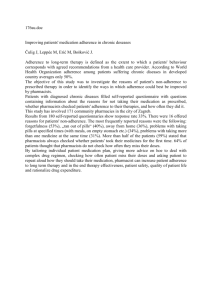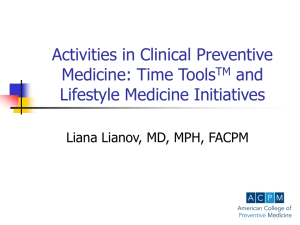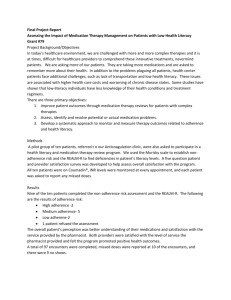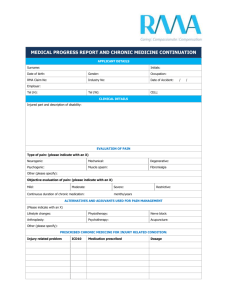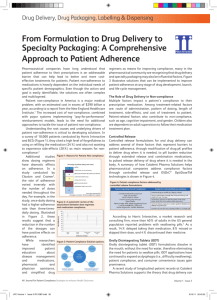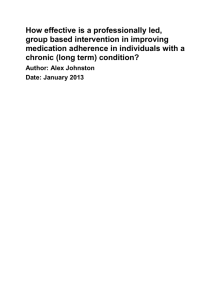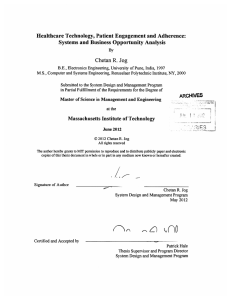How effective is a peer led education/self-management
advertisement
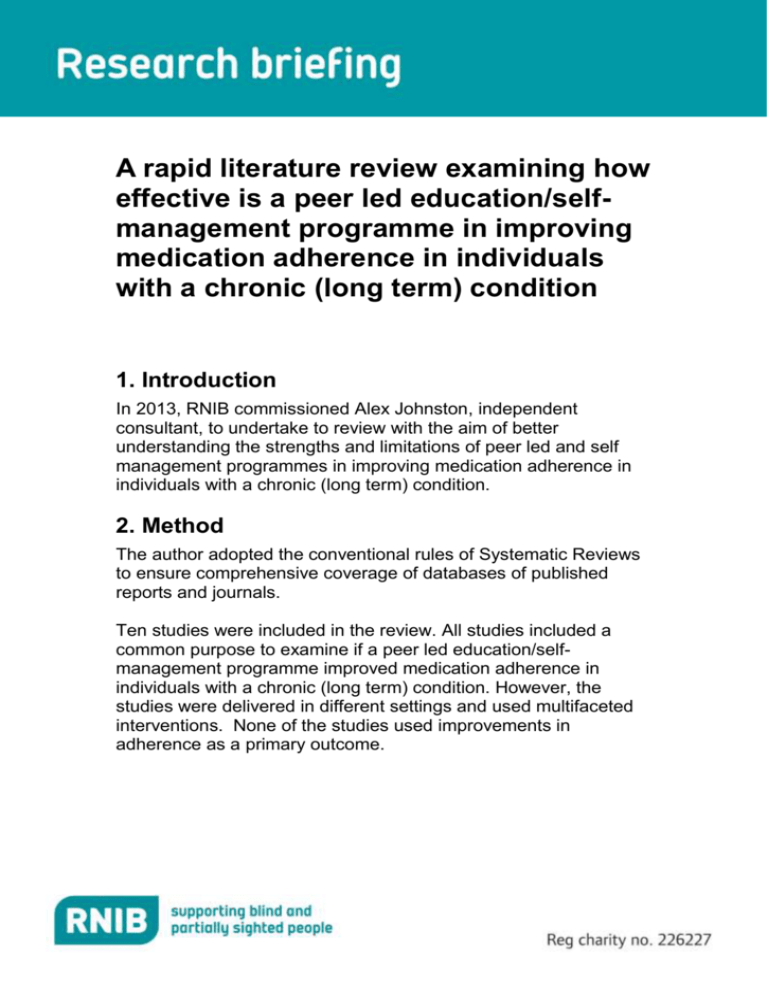
Research briefing A rapid literature review examining how effective is a peer led education/selfmanagement programme in improving medication adherence in individuals with a chronic (long term) condition 1. Introduction In 2013, RNIB commissioned Alex Johnston, independent consultant, to undertake to review with the aim of better understanding the strengths and limitations of peer led and self management programmes in improving medication adherence in individuals with a chronic (long term) condition. 2. Method The author adopted the conventional rules of Systematic Reviews to ensure comprehensive coverage of databases of published reports and journals. Ten studies were included in the review. All studies included a common purpose to examine if a peer led education/selfmanagement programme improved medication adherence in individuals with a chronic (long term) condition. However, the studies were delivered in different settings and used multifaceted interventions. None of the studies used improvements in adherence as a primary outcome. Logo – RNIB supporting blind and partially sighted people Registered charity number 226227 3. Key findings from the research This rapid review of studies designed to improve medication adherence in chronic medical conditions through peer led and self management programmes found: peer led education/self-management programmes may lead to short-term improvements in participants’ self-efficacy and self care behaviour both of which are associated with better health outcomes peer led education/self-management programmes do not improve medication adherence in individuals with a chronic (long term) condition 4. Conclusions Overall there is insufficient evidence at present to justify widespread implementation of a peer led education/self management programme, if the sole aim is to improve medication adherence in individuals with a chronic condition such as glaucoma. However, it is important to recognise that there is a large amount of research on interventions for improving adherence to glaucoma therapy. Also, due to time restrictions and the restrictive inclusion criteria (the use of peer led self-management programmes) a substantial body of relevant evidence has not been discussed in this report. 5. Further information Link to the full report © RNIB x ESI Research briefing 2
